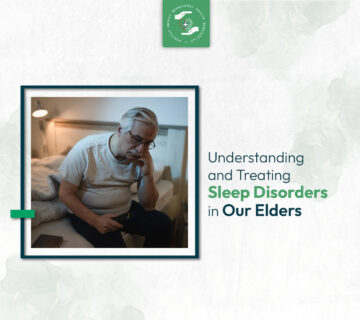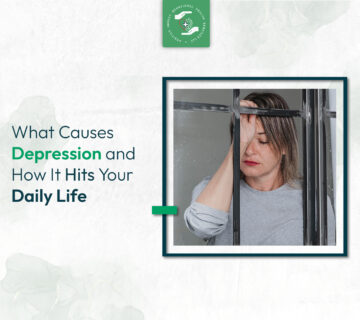Medication management is often the go-to solution for mental health care, but it’s not the only option available. Many people seek alternative treatments for various reasons, such as side effects, personal preferences, or a desire for a more holistic approach. In this blog, we’ll explore some of the most effective and widely-used alternatives to medication management for mental health care.
Therapy and Counseling
Therapy and counseling are among the most popular alternatives to medication management. Options like cognitive-behavioral therapy (CBT), psychotherapy, and group therapy have proven effective for many individuals. These methods focus on addressing the root causes of mental health issues through structured conversation and problem-solving techniques.
More specifically, CBT helps individuals understand the interplay between their thoughts, feelings, and behaviors. By recognizing negative thought patterns, people can work on replacing them with more positive and realistic ones. This kind of therapy is extremely helpful for individuals dealing with anxiety and depression.
Group therapy provides a unique environment where individuals can share their experiences and learn from each other under the guidance of a therapist. This collective approach can be especially beneficial for issues like addiction, where peer support is a crucial element of recovery.
Positive Impact Behavioral Health offers comprehensive therapy services that are designed to meet individual needs. From anxiety and depression to PTSD and more, their evidence-based techniques can make a significant difference in improving emotional well-being.
Lifestyle Changes
Incorporating lifestyle changes such as regular exercise, a balanced diet, and sufficient sleep can have a significant impact on mental health. Physical activity releases endorphins, which can improve mood, while nutritional adjustments can address deficiencies that may affect mental well-being.
One of the easiest changes to implement is improving sleep hygiene. According to Positive Impact Behavioral Health, getting enough restorative sleep can dramatically improve emotional resilience and cognitive function. Simple adjustments like maintaining a regular sleep schedule and creating a comfortable sleep environment can make a huge difference.
Diet also plays a critical role in mental health. Foods rich in omega-3 fatty acids, antioxidants, and vitamins can contribute to better brain health. Incorporating these foods into your meals can help stabilize mood swings and improve overall mental clarity.
Exercise is another powerful tool for mental health. Activities like yoga, brisk walking, and weight lifting can not only improve physical health but also reduce symptoms of depression and anxiety. The release of endorphins during exercise acts as a natural mood booster.
Mindfulness and Meditation
Mindfulness and meditation practices have gained traction as powerful tools for managing stress, anxiety, and depression. Techniques such as deep breathing, guided imagery, and mindfulness exercises can help individuals maintain mental clarity and emotional balance.
Practicing mindfulness involves focusing on the present moment and accepting it without judgment. This practice can help break the cycle of negative thinking that often contributes to mental health issues. According to research, mindfulness can reduce the symptoms of various psychological conditions, including PTSD and anxiety.
Meditation adds another layer of mental health benefits. Regular meditation can improve emotional regulation, reduce stress, and encourage a more positive outlook on life. Simple practices like breathing exercises or guided meditations can be easily incorporated into daily routines.
For those new to these practices, numerous mobile apps offer guided mindfulness and meditation exercises. These digital tools make it easy to start practicing mindfulness and can be accessed anytime, providing immediate relief from stress and anxiety.
Holistic Treatments
Holistic treatments like acupuncture, yoga, and aromatherapy aim to treat the body and mind as a whole. These methods often complement other forms of mental health care and focus on achieving overall well-being through a more integrated approach.
Acupuncture can stimulate specific points on the body, which is believed to improve the flow of energy and promote healing. This ancient practice has been found to reduce symptoms of anxiety and depression in some individuals.
Yoga is another holistic option that combines physical postures, breathing exercises, and meditation. This blend of activities can enhance mental clarity, reduce stress, and improve emotional health. The physical exertion involved in yoga also releases endorphins, contributing to a better mood.
Aromatherapy uses essential oils to improve well-being. Scents like lavender and chamomile are known for their calming effects, while citrus scents can be uplifting. Diffusing these oils or applying them topically can provide immediate relief from stress and anxiety.
Support Systems
A strong support system of family, friends, and support groups can provide emotional support and encouragement. These relationships can be invaluable in helping individuals cope with mental health challenges, offering a sense of community and understanding.
Support groups offer a safe space to share experiences and learn from others who are facing similar struggles. These groups can provide practical advice and emotional comfort, making it easier to navigate the challenges of mental health.
Family and friends play a crucial role in mental health recovery. Their emotional support and encouragement can make a significant difference in how an individual copes with their condition. Educating loved ones about mental health can also foster more empathy and understanding.
For more structured support, Positive Impact Behavioral Health provides a range of services designed to help individuals and their families. Anxiety treatment services at Positive Impact Behavioral Health focus on offering personalized, evidence-based care that addresses the unique needs of each individual.
Emerging Technologies
New technologies such as mobile apps for mental health, teletherapy, and virtual reality exposure therapy are opening up innovative avenues for mental health care. These tools can provide additional support and resources, making mental health care more accessible.
Mobile apps that track mood swings, suggest coping strategies, and offer guided meditation can help users manage their mental health more effectively. Apps like these provide immediate support and can be especially useful for those who might not have easy access to traditional therapy.
Teletherapy offers the convenience of receiving psychotherapy and counseling from the comfort of home. This form of therapy has become especially popular during the COVID-19 pandemic, making mental health services more accessible to a broader population.
Virtual reality exposure therapy is a cutting-edge technique used to treat conditions like PTSD and anxiety. This therapy uses VR technology to immerse individuals in virtual environments where they can safely confront and work through their fears and traumas.
By utilizing these emerging technologies, Positive Impact Behavioral Health is committed to providing comprehensive care tailored to the modern age. These innovative approaches, combined with traditional therapies, offer a well-rounded strategy for managing mental health.
Exploring Mental Health Care Options
While medication management is a valid and effective option for many, it’s important to recognize that there are numerous alternatives available. From therapy and lifestyle changes to holistic treatments and technology, the field of mental health care is rich with diverse options. Always consult with a healthcare professional to determine the best course of action tailored to your individual needs.






No comment